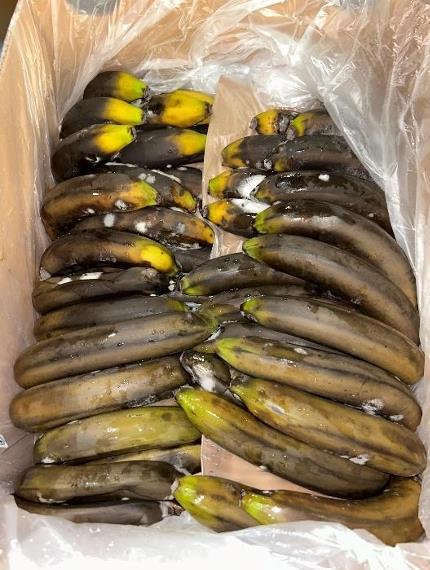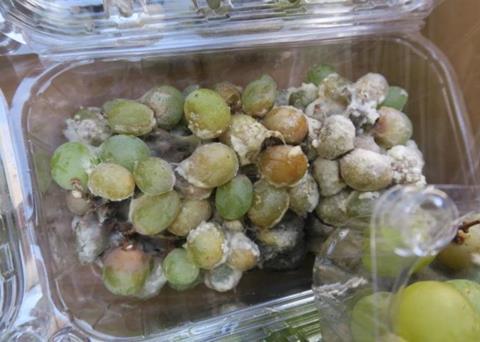Insurance cover is a tricky business for fruit exporters, but there are ways to reduce your risk, says Lina Jasutiene of Recoupex

For the global fruit export industry, staying afloat financially involves an array of logistical challenges. From securing adequate insurance coverage to dealing with excessive transit times, exporters must remain vigilant to minimise transport losses in 2025. Being proactive and informed about trends in cargo claims is crucial for those looking to safeguard profits and ensure smooth operations.
Here are three areas where we believe close monitoring is critical:

1. Difficulty in obtaining suitable insurance coverage
Securing insurance that really addresses the specific risks faced by fresh produce exporters remains a significant hurdle. Standard insurance policies often cover irrelevant risks, such as earthquakes or containers lost overboard, which rarely occur. Meanwhile, crucial concerns like reefer malfunction or delays in transit are often excluded from policies, or poorly addressed.
Insurers have become increasingly cautious, making specialised policies harder to obtain at reasonable premiums. Moreover, prolonged claim investigations and delayed payouts exacerbate the challenges for exporters who seek compensation for losses.
How exporters can address this challenge:
● Thoroughly review insurance policies: Do not take the broker’s words for granted. Ensure policies include coverage for reefer malfunctions, temperature fluctuations, and delays. If you opt for less expensive, standard insurance coverage, remember – delay and reefer malfunction risks are excluded, so do not expect any payout.
● Build a strong claims history: Demonstrating proactive risk management, claims recovery efforts from liable carriers can lead to better terms and lower premiums.
● Pursue claim recovery individually: Many smaller-value shipments, such as grapes, bananas, and citrus, are often uninsured. Exporters should have processes to collect evidence, such as loading documents, harvest certificate, temperature logs, and photos, to pursue claims against liable carriers successfully.
2. The growing importance of loss mitigation efforts for importers
As fruit-exporting nations like India increase their imports, importers are finding it essential to develop strategies that guard against potential losses. Efficiently salvaging cargo, gathering evidence of damage, and successfully submitting claims to carriers are becoming indispensable skills in protecting margins and recovering losses.
Best practice for importers:
● Implement loss mitigation strategies: Monitor shipments’ arrival, expedite gate-out processes from ports, and establish a network of salvage buyers.
● Improve claim submission processes: Document the cargo and container condition at the time of arrival. Invite the shipping line to take part in joint surveys, and provide standardised, accurate documentation to speed up the claims process.
● Determine liability: Clearly identify whether the exporter or shipping line is responsible for damages, to improve accountability and claims outcomes.

3. The Red Sea crisis and transit time challenges
Ongoing geopolitical tensions in the Red Sea region continue to disrupt transit times, despite some carriers advertising pre-crisis service levels. Delays are particularly detrimental to perishable commodities like table grapes, which have short shelf-lives. To counter these challenges, exporters must optimise their operations to extend product freshness and mitigate risks.
Strategies for exporters:
● Streamline post-harvest processes: Build practices to accelerate pre-cooling, packing, loading, and inland transit to the port operations. And meticulously record these steps.
● Build buffer times: Adjust schedules to account for potential delays during transit, allowing for extra days of shelf-life.
● Collaborate with reliable carriers: Work with shipping lines that have a proven track record of timely deliveries, and are willing to honour claims for delays.

Consumer demand for visually appealing and tasty fresh fruit has risen steadily since the Covid-19 pandemic. Supermarket programmes have become stricter, placing immense pressure on exporters to meet on-time deliveries and high-quality standards. When fruit is damaged in transit, exporters face severe penalties, including non-payment from buyers.
Absorbing these losses is an unsustainable financial burden, particularly when growers and employees at origin still need to be paid for their labour. As a result, it is crucial for exporters to pursue and recover cargo claims, to document sound cargo conditions at origin, and to secure appropriate insurance coverage.






